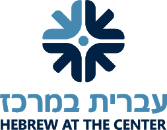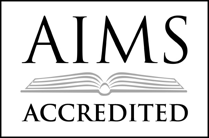Interdisciplinary Study of Ancient Greece Optimizes Learning
March 20, 2018 by
An astrophysicist leads our middle schoolers through an exploration of gemara, bringing forth his expertise on the phases of the moon to lend insight into the gemara that deals with identifying the new month. A filmmaker teaches the art of storytelling as he also sheds light on the craft of the investigative historian and the artistic elements of filmmaking. A conductor, historian, innovator, filmmaker, and Holocaust studies expert opens our sixth graders’ eyes to the acts of resistance taken in the past and in the present through the medium of music. In our middle school, we have found that interdisciplinary, or integrated, curricula create opportunities for authentic, intellectually exciting, productive, and enduring learning. Our sixth graders’ recent exploration of Ancient Greece provides an example of how we integrate our studies for optimal impact.
Our sixth graders explored various secondary sources and primary documents in their study of the history and relevance of ancient Greece, focusing on the enduring legacy of Ancient Greece in modern times. In small groups, they became issue-area experts on a specific part of Ancient Greek history; then, they taught their peers this history through historically accurate and oftentimes humorous skits. Students secured content knowledge as they also developed skills related to research, writing, collaboration, and presentation. They analyzed Greek democracy, the risky decision to colonize, the Peloponnesian and Persian Wars, and the legacy of Alexander the Great. Throughout, they also explored Greek philosophers’ universal lessons, discovered the roots of the geometry concepts they are learning in math class, appreciated Aristotle’s system for categorizing species that connected to their studies in science, and debated the pros and cons of the various forms of government that emerged in ancient Greece to inform and deepen their thinking on leadership and the people’s voice in decision-making.
While studying this history, students also undertook the challenge of reading a prose version of The Odyssey, Rosemary Sutcliff’s The Wanderings of Odysseus. Context for The Odyssey was provided through a read-aloud version of The Iliad, Dateline: Troy, which emphasizes that the events and emotions of the Trojan War have endured in current events. The students’ study of The Odyssey culminated with the Odysseus Games Fair, for which the sixth graders designed board games, inspired by a theme of The Odyssey, that integrated key characters and events. As they developed the games and then reflected on the fair itself, they drew on Design Thinking protocols that inform so many of our endeavors at MILTON. Having had recent experiences in computer programming through our weekly Exploratory program, the students applied the strategic thinking that computer programming cultivates to devise games with multiple steps and nuanced complexity.
As part of their study of Ancient Greece and The Odyssey, students read selected Greek myths, including the myth of Icarus. In studying Icarus, the sixth graders first interpreted a Brueghel painting based on the myth and, after reading it, returned to the painting to examine their deepened connection to it. This undertaking related to the Biblical Art immersive learning week study, where students’ biblical knowledge enriched their understanding of related works of art; it also connects to the upcoming mythology elective in which students will further study myths from Ancient Greece and other civilizations, as well as the allegory elective in which students will draw on their understanding of theme to interpret and create social commentary.
The cross-curricular connections were not limited to Language Arts and Social Studies. The sixth graders, aware that The Odyssey is an epic poem, examined several translations of the prologue, discussing the merits and detriments of each. The discussion included the topic of translation, something their Judaic studies teachers have explored with them in their studies of Hebrew texts and their commentaries. And how exciting it was when students recognized the connections between the Purim story and what they had just learned about the Persian Empire as it came into conflict with the Greeks.
When students explore and integrate the many intersections of their studies, they experience learning that is more holistic and enduring. Our approach provides students with numerous experiences that invite them to view knowledge not as silos of content, but as intersecting webs of information, helping them to become more adept in understanding and navigating the complexities inherent in every path of study and in all real-life situations.






